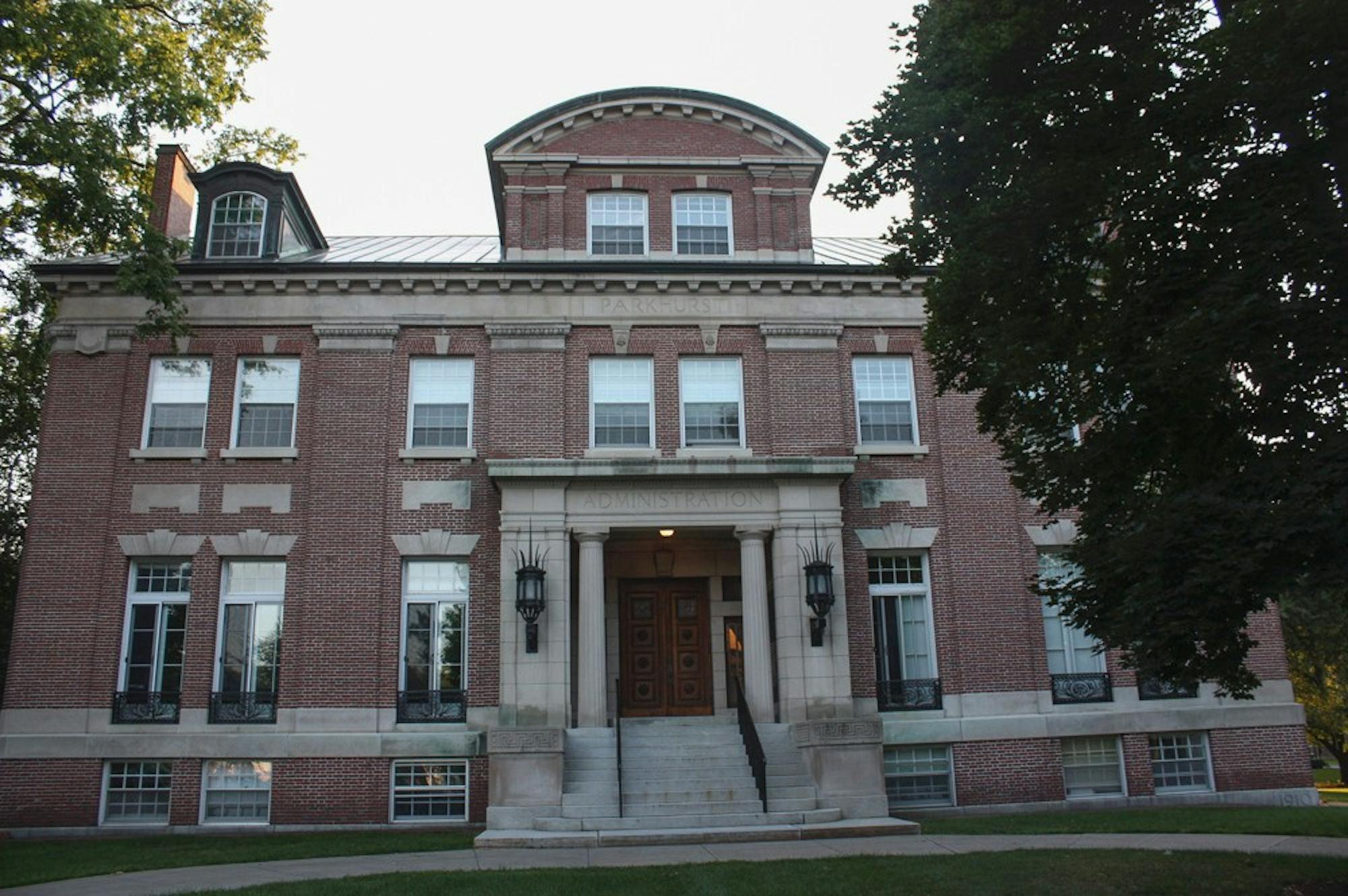A second report evaluating the College’s Moving Dartmouth Forward (MDF) initiative was released to the Dartmouth Board of Trustees by an external review panel mid-December.
Tufts University’s president emeritus and chair of the MDF external review panel Lawrence Bacow said that everything the College set out to do through the initiative has been done on schedule, changing the role of the review panel.
“Now our roles [on the external review panel] has transitioned a bit — less auditing if you will, and doing more assessment going forward, to see the impact,” he said.
The report consisted of five areas for evaluation, including transforming residential life; promoting a safer and healthier campus; clarifying and strengthening expectations of individuals and student organizations; strengthening intellectual engagement while enhancing learning outside the classroom; and accountability. All five were met with largely positive comments in the report, although the panel emphasized that many of the implementations were in early stages.
“As I said to the rest of the panel, we’re only in the first or second inning of a nine inning game, but we’re seeing very positive signs,” Bacow said.
Bacow said that responses from students and faculty members involved in the residential house system were quite positive, although some first and fourth year students were disaggregated, as fourth year students expressed some skepticism of the house system. By contrast, first year students were uniformly enthusiastic, possibly because it was their first and only residential system that they had encountered.
“I think that over time, you’re going to see the house system embraced by the entire student body, but that will take at least four years, probably five or six,” Bacow said. “It’s just the nature of these things, because even the first year students now are hearing stories from seniors about the good old days. Cultural change takes a while.”
Student senate member for South House Jamie Park ’20 said that first years were naturally inclined to become invested in the new house system and that the social events provided were a way for students to meet new groups of people they would have never met otherwise.
“I think the house communities have offered an outlet for students who aren’t inclined to socialize in other spaces and it has created a safer space for students who aren’t inclined to drinking,” Park said. “The social events aren’t always for everyone, but I know people who have gone to these events and made a lot of friends doing so.”
Bacow said that because the house system was largely in its beginning stages, members of the houses, such as house professors, undergraduate advisors and graduate students in residence, were figuring out their roles within the communities. However, he said one positive effect that he noted from students was the new exposure undergraduates had to graduate students.
Among the recommendations made within the report, Bacow emphasized that the College would have to encourage to get faculty to invest in the house system. He said that being a house professor must be a positive experience for the faculty and it was thus essential for them to feel supported by the College.
“We didn’t hear that [the experiences] weren’t positive, but at least for some [members of the faculty], it was a lot of work, more than some of them had anticipated,” Bacow said. “We wanted to emphasize the importance of ensuring that the faculty who’ve assumed major responsibility of the house system have a positive experience, because if they do, it’ll be that much easier to recruit the second generation of faculty for the house system.”
Senior associate dean of student affairs Liz Agosto said that Dean of the College Rebecca Biron will be working with house professors to improve the system in light of the recommendations. Other efforts will include continuing to assess more data to see how alcohol and high-risk level drinking affects the community, as well as looking at the data more in depth. She said that the long term goal of consistently moving forward with MDF, which was recommended in the report, will largely be around the programs against sexual assault.
“[That] needs to keep hitting the ground running,” Agosto said. “This is an institution where everyone should feel safe. That takes time to build i well, that’s where a lot of work needs to be done.”
She said that while student responses to some of MDF’s initiatives, including the hard alcohol ban, may have been mixed, the work around sexual violence prevention, such as Dartmouth’s Bystander Initiative, has been positively received. She also said that the house communities and new influxes of resources into social events have been positively received by incoming students.
Work done for the alcohol management program with student organizations and Greek Letter organizations have also been important, Agosto said. She said that the program refocused on health and safety, rather than rules and its minutiaes and the creation of safe spaces.
Bacow said that the panel was encouraged by the evidence that there was a lesser number of students being transported with high alcohol levels in their blood. He also said that while it was the second year in a row that he heard that students were not enthusiastic about the hard alcohol ban, he also heard that students thought it was having a positive impact.
Agosto said that the initiatives of MDF to decrease high risk behavior and increase inclusivity through programs such as the house system were connected in many ways.
“We want to be a community that has fun and engages, and it’s never been about getting rid of alcohol but being a community that’s safe, respectful and takes care of one another,” she said. “I believe you learn best where you’re comfortable and where you feel you can express a dissenting opinion and have a space to belong ... so I think those two things are vital and deeply intertwined. The two work in concert.”




